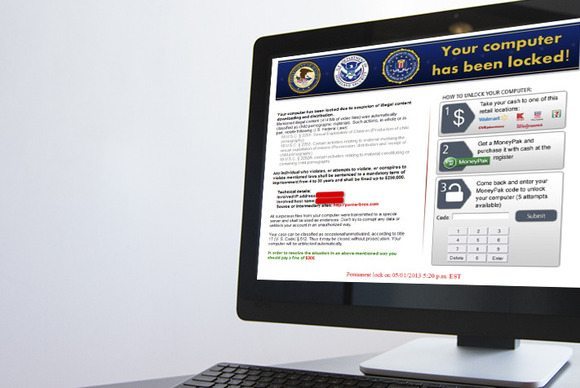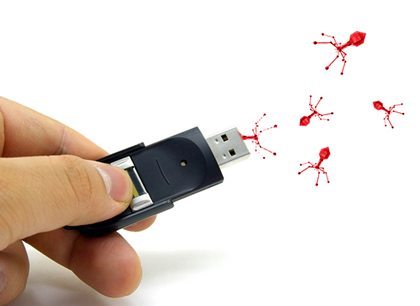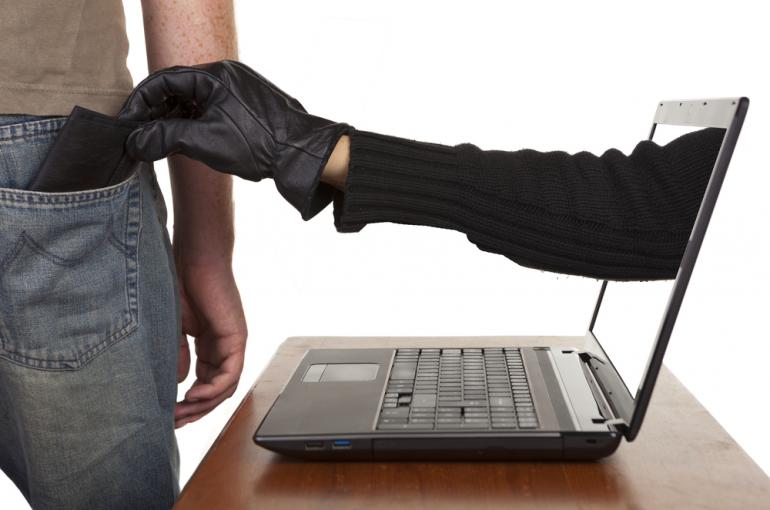Cyber Threats from Email
If your computer is locked, and you are seeing a “Your computer has been locked” notification from a law enforcement agency (eg: FBI, Australian Federal Police, Metropolitan Police), then your computer is infected with a piece of malware known as Trojan Reveton.
The Your computer has been locked virus is distributed through several means. Malicious websites, or legitimate websites that have been hacked, can infect your machine through exploit kits that use vulnerabilities on your computer to install this trojan without your permission of knowledge.
Another method used to propagate this type of malware is spam email containing infected attachments or links to malicious websites. Cyber-criminals spam out an email, with forged header information, tricking you into believing that it is from a shipping company like DHL or FedEx. The email tells you that they tried to deliver a package to you, but failed for some reason. Sometimes the emails claim to be notifications of a shipment you have made. Either way, you can’t resist being curious as to what the email is referring to – and open the attached file (or click on a link embedded inside the email). And with that, your computer is infected with the Your computer has been locked virus.
The threat may also be downloaded manually by tricking the user into thinking they are installing a useful piece of software, for instance a bogus update for Adobe Flash Player or another piece of software.
The Your computer has been locked virus is also prevalent on peer-to-peer file sharing websites and is often packaged with pirated or illegally acquired software.
Once installed on your computer, the Your computer has been locked virus will display a bogus notification that pretends to be from an official law enforcement agency (eg: U.S Department of Justice, Royal Canadian Mounted Police, United Kingdom Police), and states that your computer has been blocked due to it being involved with the distribution of pornographic material, SPAM and copyrighted content.
The Your computer has been locked virus will lock you out of your computer and applications, so whenever you’ll try to log on into your Windows operating system or Safe Mode with Networking, it will display instead a lock screen asking you to pay a non-existing fine in the form of a Moneypak, Ukash or Paysafecard voucher.
Furthermore, to make this alert seem more authentic, this virus also has the ability to access your installed webcam, so that the bogus Your computer has been locked notification shows what is happening in the room.
The Your computer has been locked virus locks the computer and depending on the user’s current location, displays a localised web page that covers the entire desktop of the infected computer and demands payment for the supposed possession of illicit material.
The message displayed by the threat can be localised depending on the user’s location, with text written in the appropriate language.
Cyber criminals often updated the design of this lock screen, however you should always keep in mind that Your computer has been locked will never lock down your computer or monitor your online activities.
The Your computer has been locked lock screen is a scam, and you should ignore any alerts that this malicious software might generate.
Under no circumstance should you send any Greendot Moneypak or MoneyGram xpress Packet vouchers to these cyber-criminals, and if you have, you can should request a refund, stating that you are the victim of a computer virus and scam.





